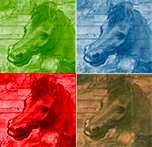Lecture series

The lecture series “Current Topics in Heritage Science” of the IPERION HS Academy aims at providing online training on fundamental aspects of heritage science, such as techniques and methodologies, as well as on specific heritage typologies and other topics of interest to the field.
The monthly lectures are typically 30 min long, followed by Q&A.
The 1st edition of the “Current Topics in Heritage Science” started in September 2022 and ended in June 2023. The programme of this edition (2022-23) can be consulted here
The 2nd edition started in October 2023. The full program of the 2nd edition (2023-24) is available here.
Previous (the last) lecture: June 27, 2024
Speaker: Mathieu Duval
Video recording: www.youtube.com/watch?v=0t6-DKcPeHE
UPCOMING:
Next lecture: to be confirmed
Speaker: to be announced
More information and registration: coming soon
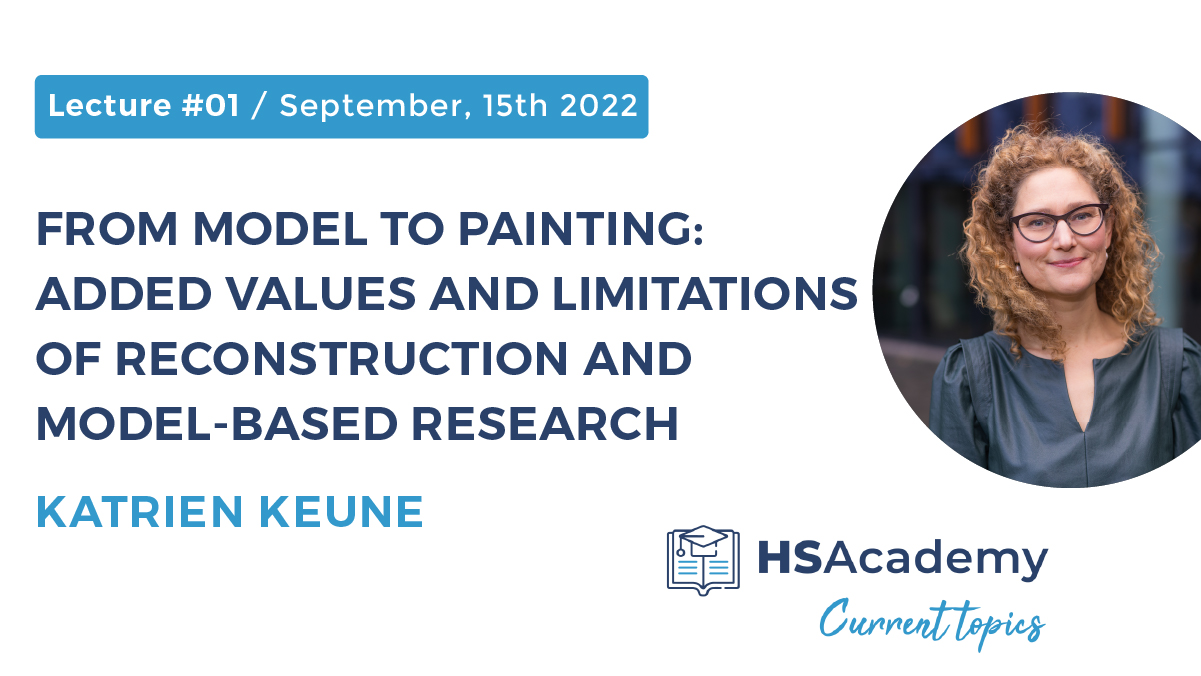
Lecture 1: From model to painting: added values and limitations of reconstruction and model-based research
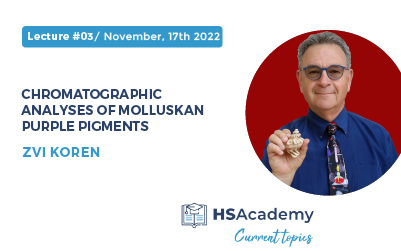
Lecture 3: Chromatographic analyses of molluskan purple pigments
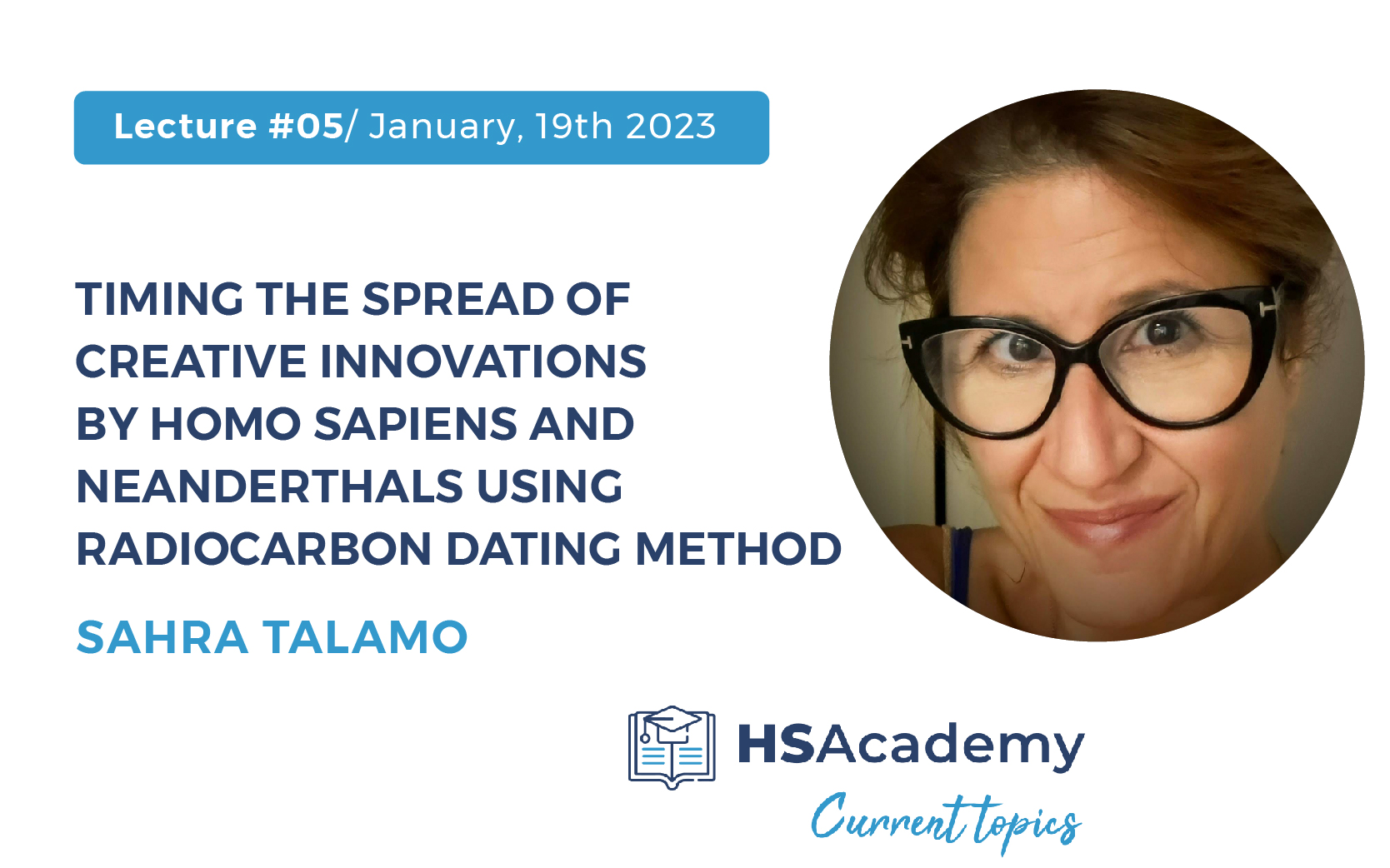
Lecture 5: Timing the spread of creative innovations by Homo sapiens and Neanderthals using the radiocarbon dating method
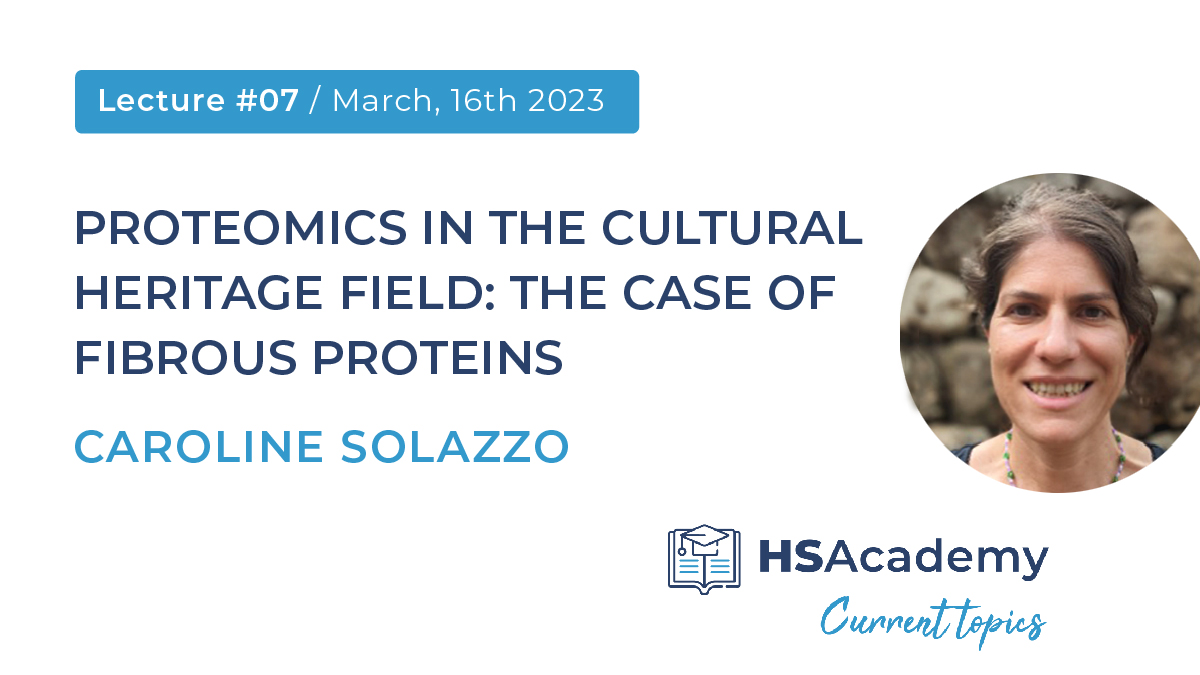
Lecture 7: Proteomics in the cultural heritage field: the case of fibrous proteins
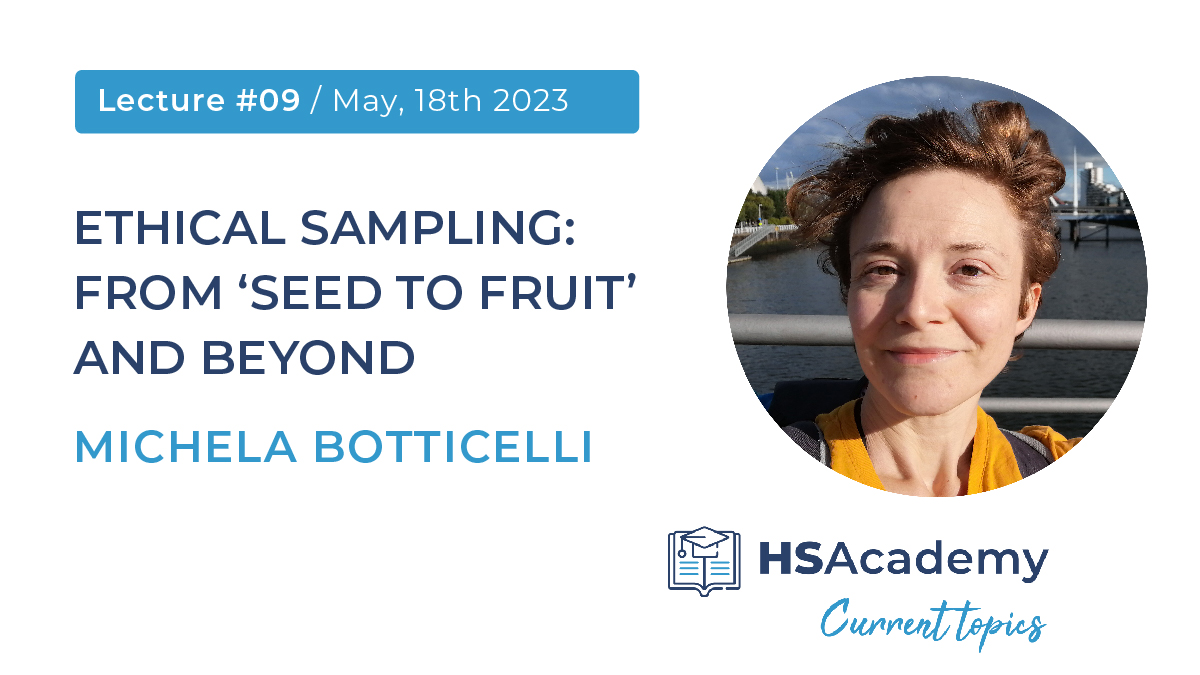
Lecture 9: Ethical sampling: from 'seed to fruit' and beyond
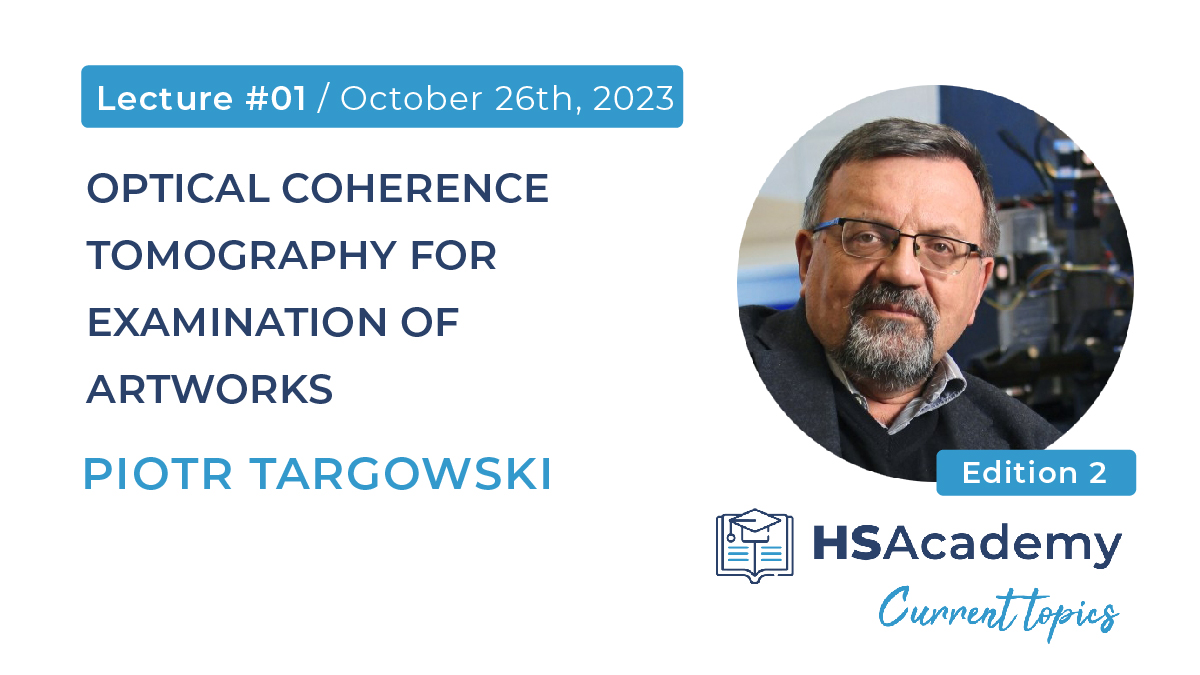
Lecture 1 (2023-24) : Optical Coherence Tomography for examination of artworks
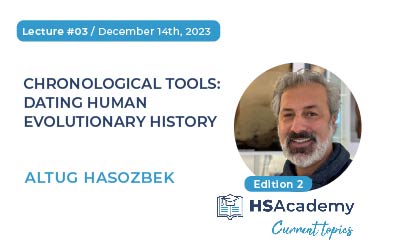
Lecture 3 (2023-24) : Chronological Tools: Dating Human Evolutionary History
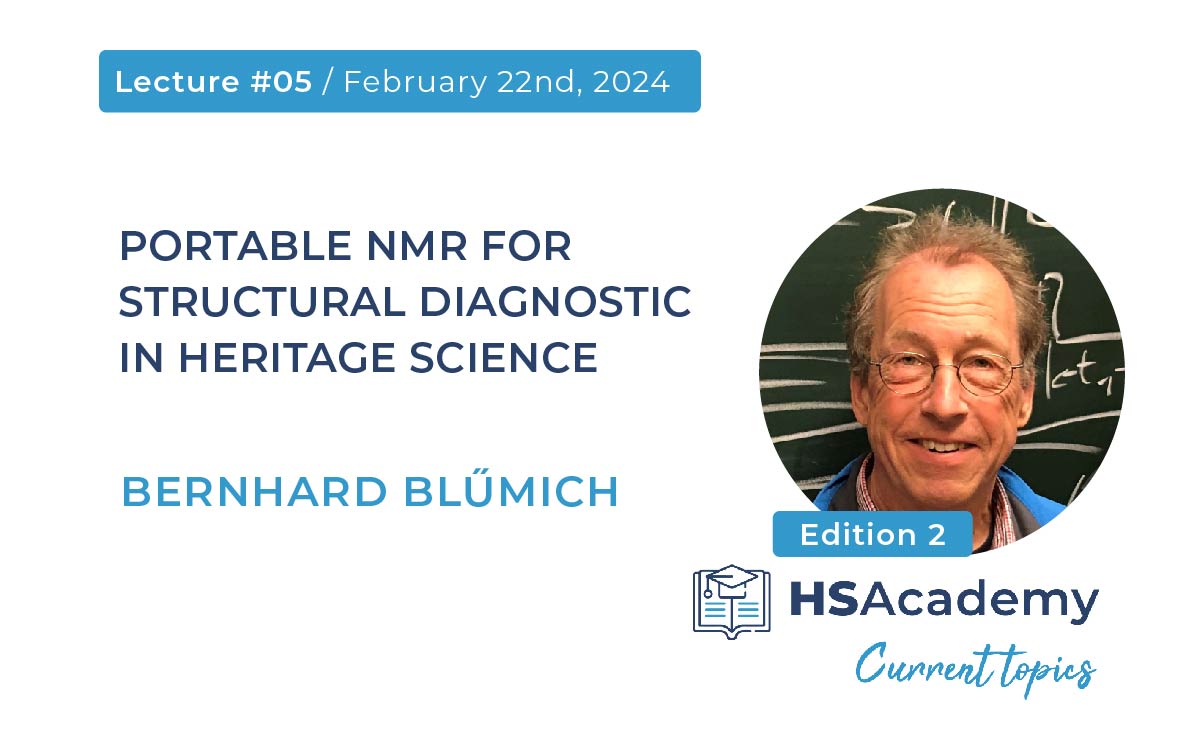
Lecture 5 (2023-24) : Portable NMR for structural diagnostic in heritage science
The 5th lecture of the 2nd edition of the “Current Topics in Heritage Science”was delivered by Bernhard Blümich, on the topic: Portable NMR for structural diagnostic in heritage science on Thursday, February 22nd at 3.00 pm (CET), using the Zoom webinar platform. This lecture introduced the participants to nondestructive methods of analysis, focusing on portable NMR technique. The talk is about: how portable NMR works and how the instrument is operated will be explained, and its use in analyzing objects of cultural heritage was illustrated in three case studies: 1) Comparative investigation of the mortar-layer stratigraphy of Roman frescoes; 2) the preservation state of master violins; and 3) the effect of solvent in varnish removal of easel paintings.
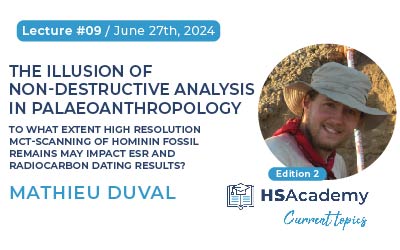
Lecture 9 (2023-24) : The illusion of non-destructive analysis in Palaeoanthropology. To what extent high resolution mCT-scanning of hominin fossil remains may impact ESR and Radiocarbon dating results?
The 9th lecture of the 2nd edition of the “Current Topics in Heritage Science” was delivered by Mathieu Duval, on the topic: The illusion of non-destructive analysis in Palaeoanthropology. To what extent high resolution mCT-scanning of hominin fossil remains may impact ESR and Radiocarbon dating results? on Thursday, June 27th at 3.00 pm (CEST), using the Zoom webinar platform. The lecture illustrates how the systematic mCT scanning of human fossils should not be regarded as a non-destructive technique, but may instead significantly impact fossil preservation and associated dating results.
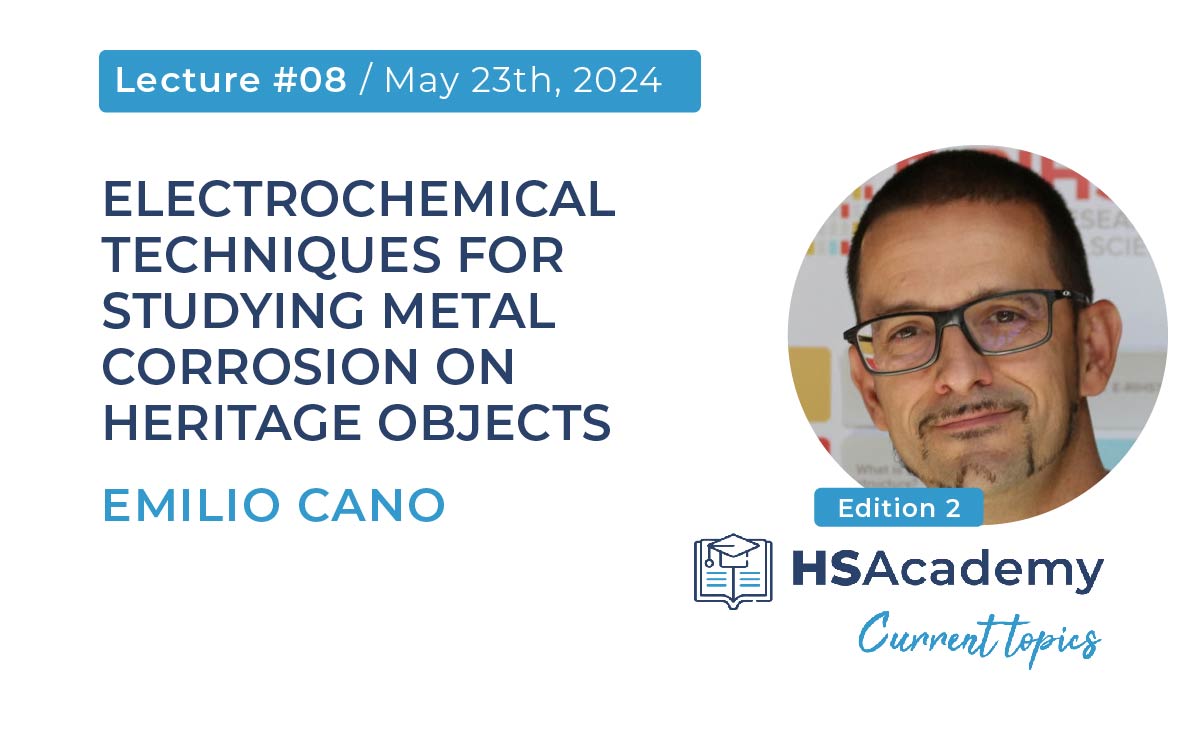
Lecture 8 (2023-24) : Electrochemical techniques for studying metal corrosion on heritage objects
The 8th lecture of the 2nd edition of the “Current Topics in Heritage Science”was delivered by Emilio Cano, on the topic: Electrochemical techniques for studying metal corrosion on heritage objects on Thursday, May 23rd at 3.00 pm (CEST), using the Zoom webinar platform. He presented the fundamentals of the technique and the applications to cultural heritage, with special focus on the Electrochemical Impedance Spectroscopy (EIS) and its application for non-destructive in-situ studies.
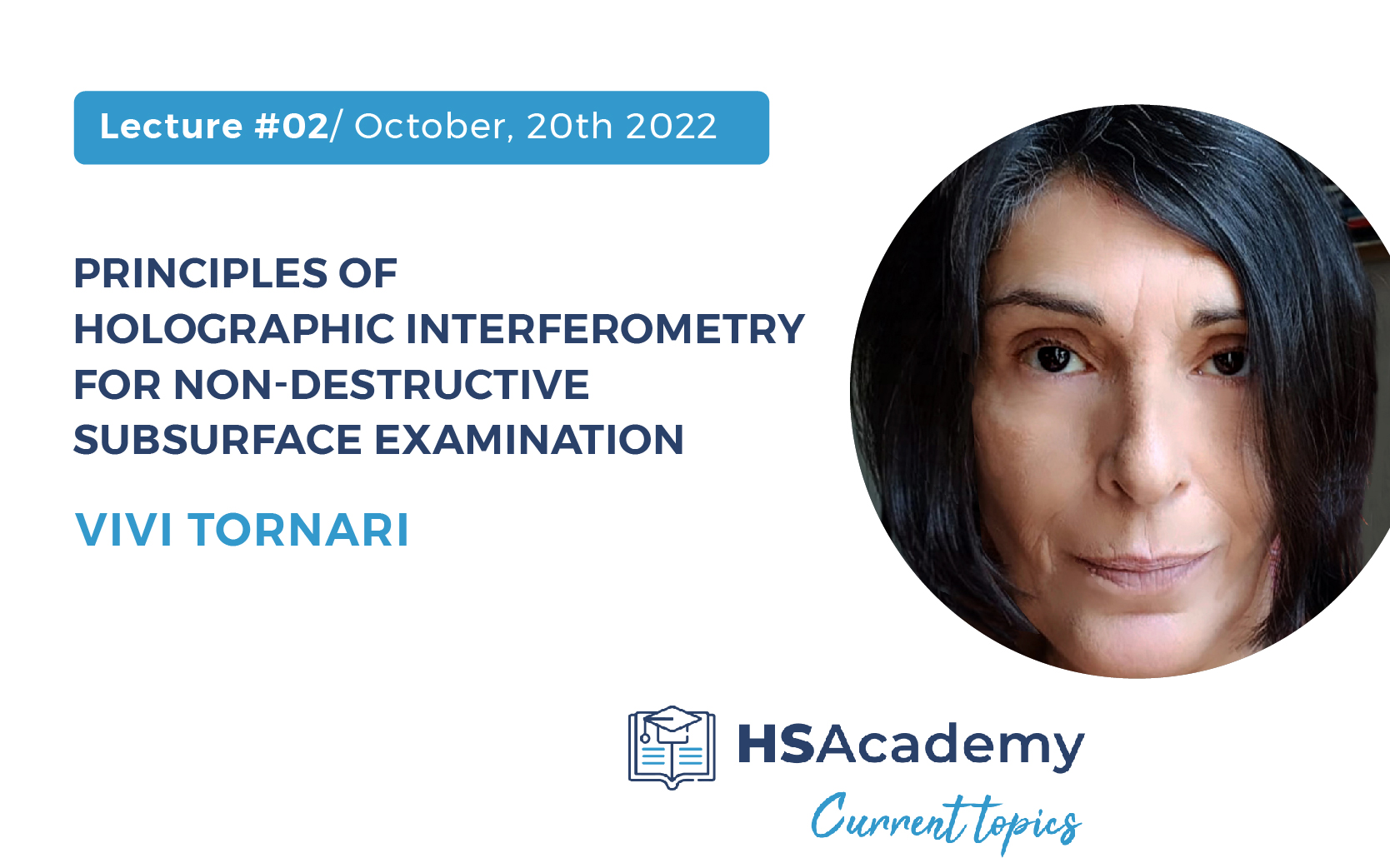
Lecture 2: Principles of holographic interferometry for non-destructive subsurface examination
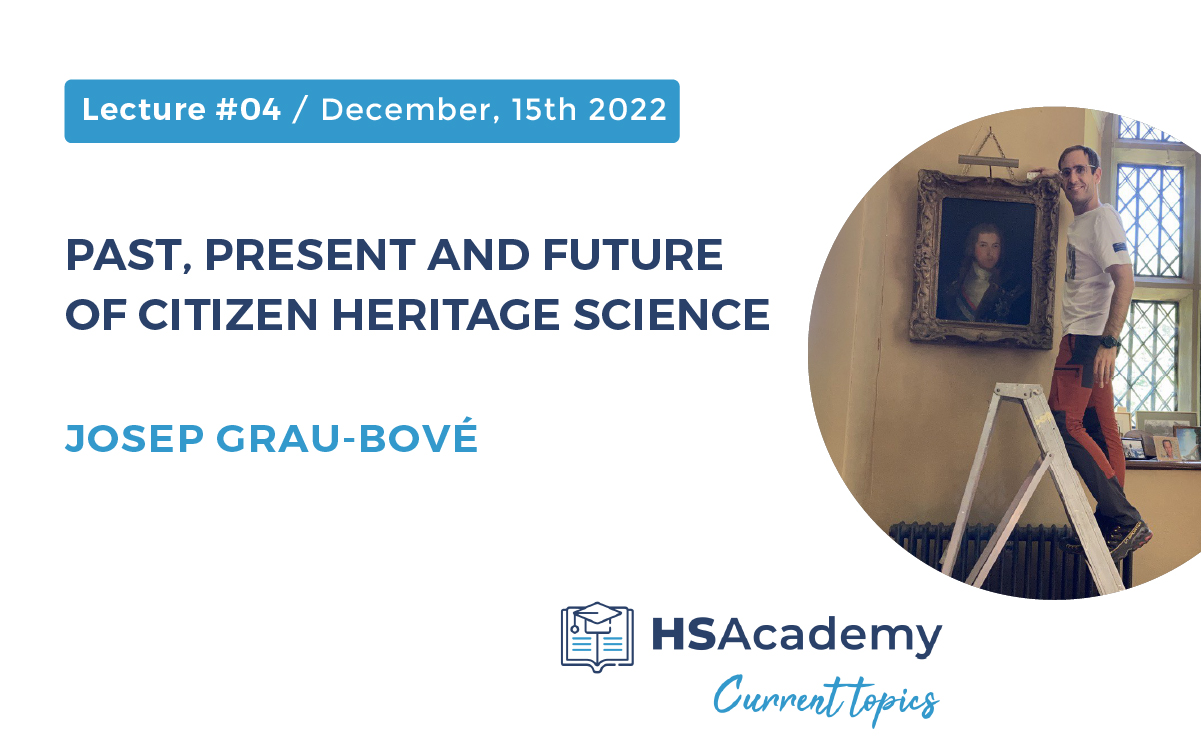
Lecture 4: Past, present and future of citizen heritage science
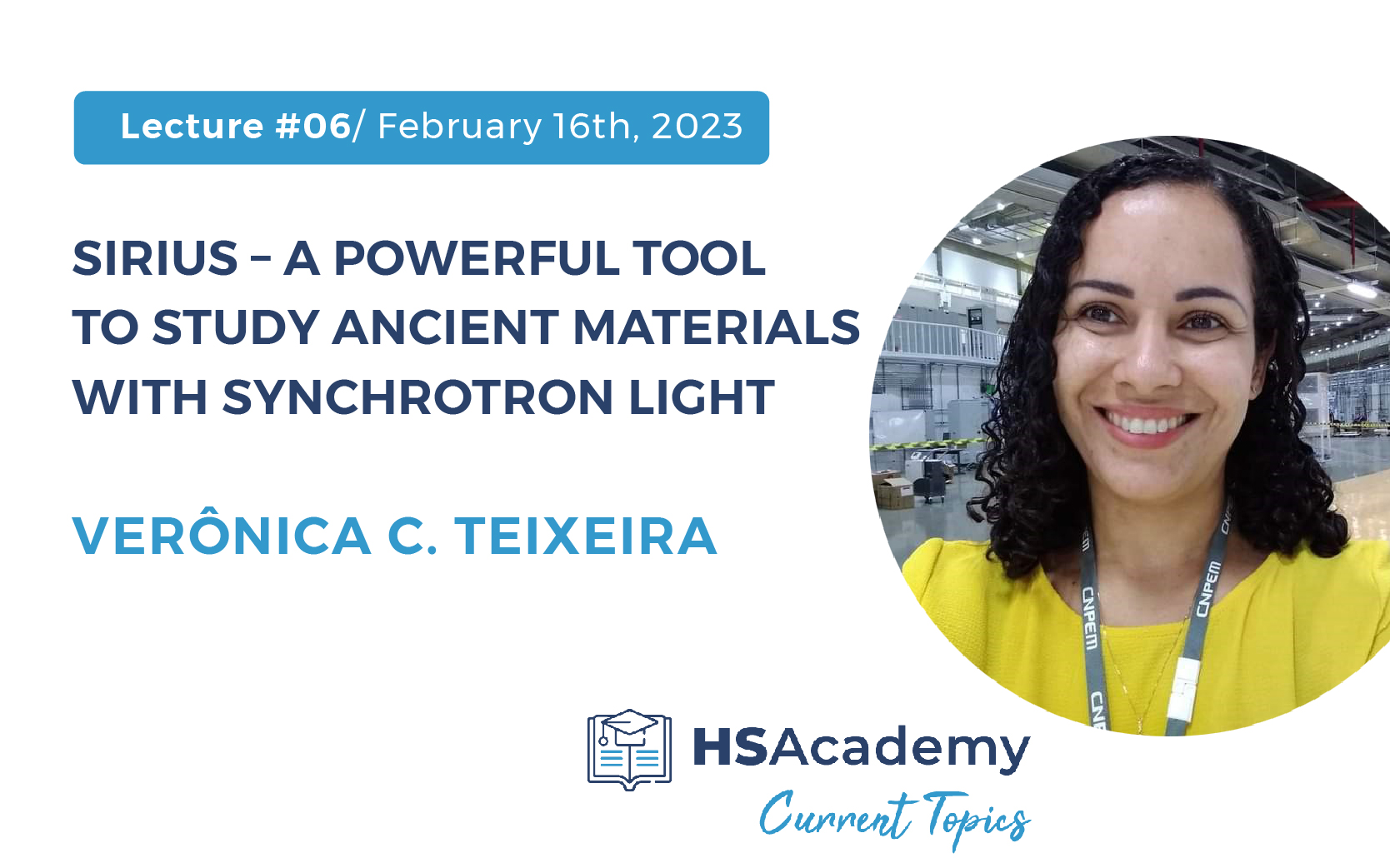
Lecture 6: Sirius – a powerful tool to study ancient materials with synchrotron light
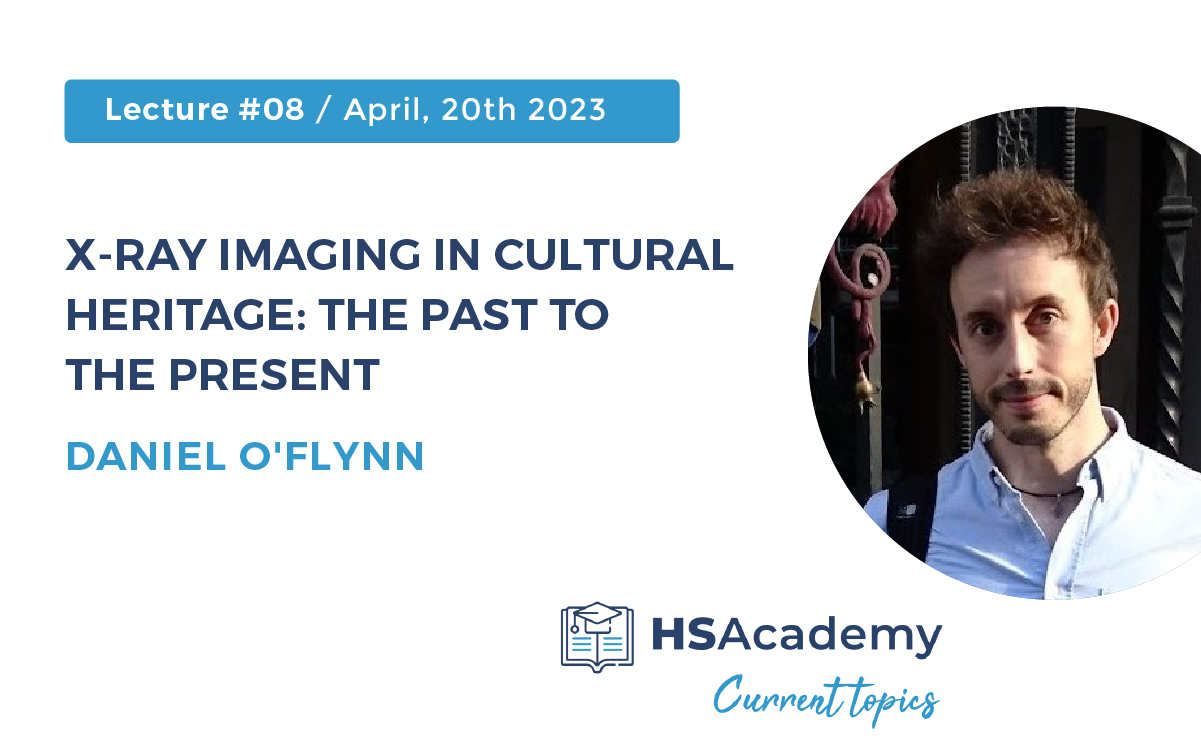
Lecture 8: X-ray imaging in cultural heritage: the past to the present
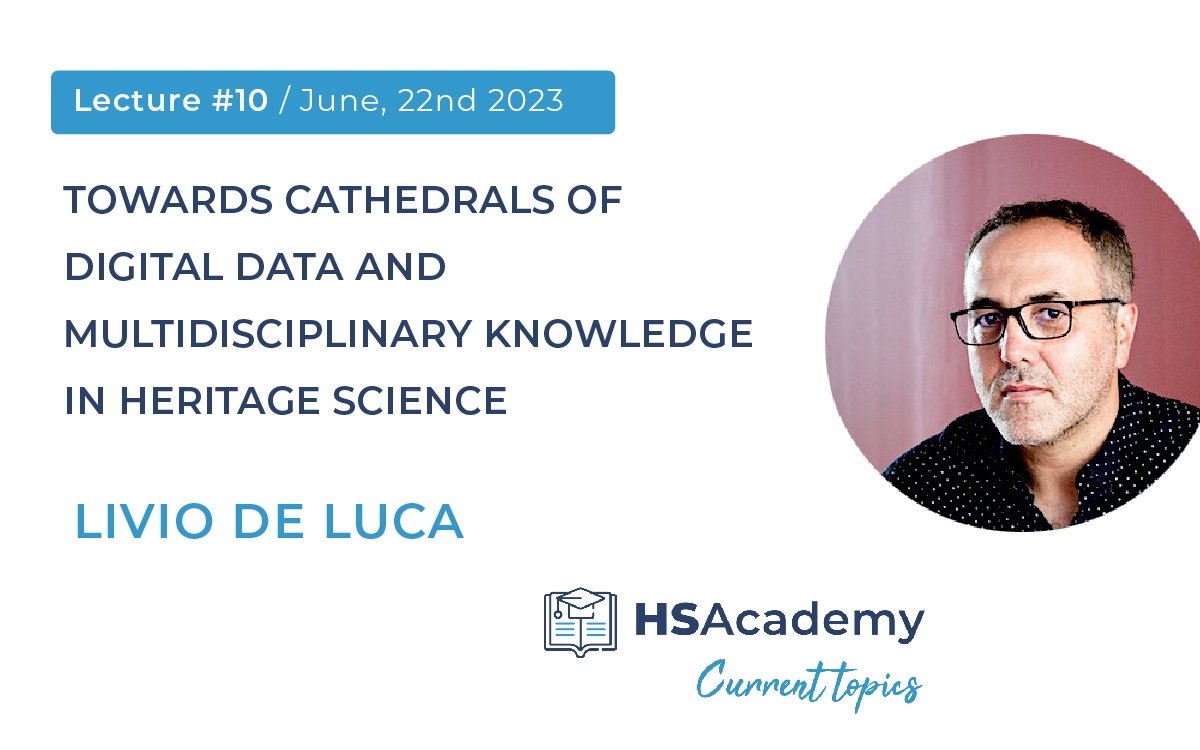
Lecture 10: Towards cathedrals of digital data and multidisciplinary knowledge in heritage science
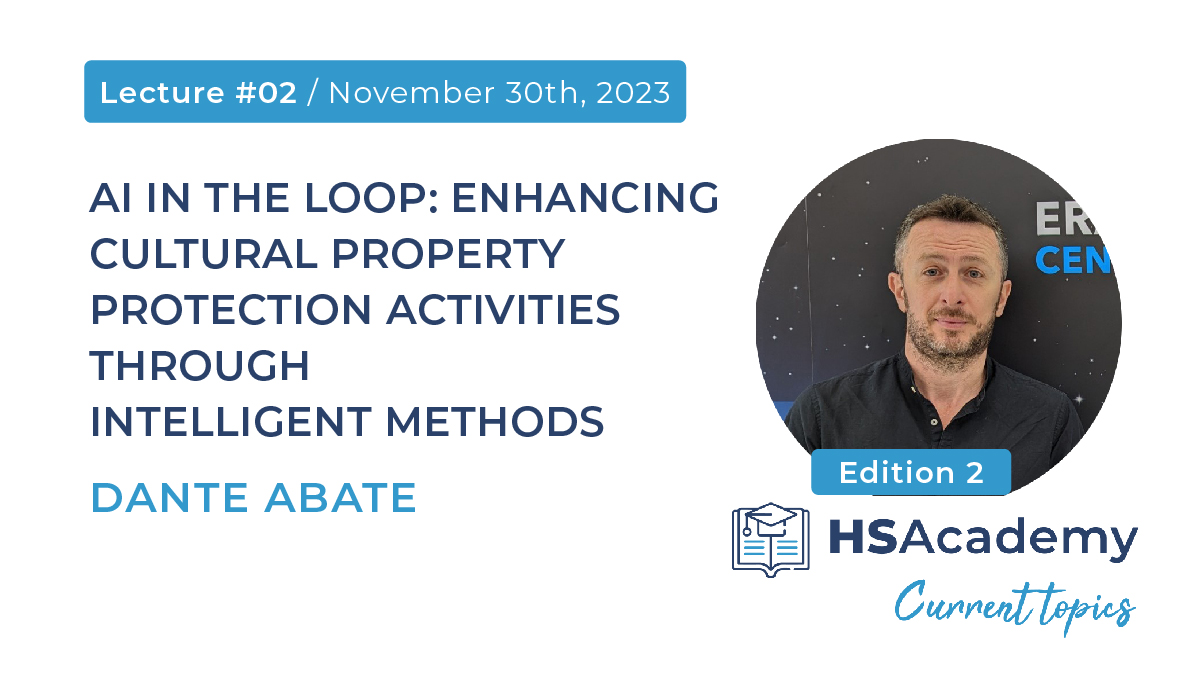
Lecture 2 (2023-24) : AI in the Loop: Enhancing Cultural Property Protection Activities through Intelligent Methods
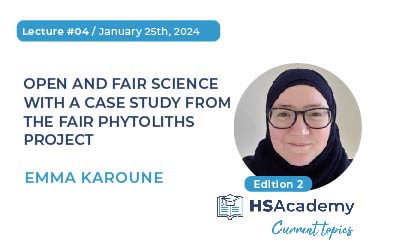
Lecture 4 (2023-24) : Open and FAIR Science with a case study from the FAIR Phytoliths project
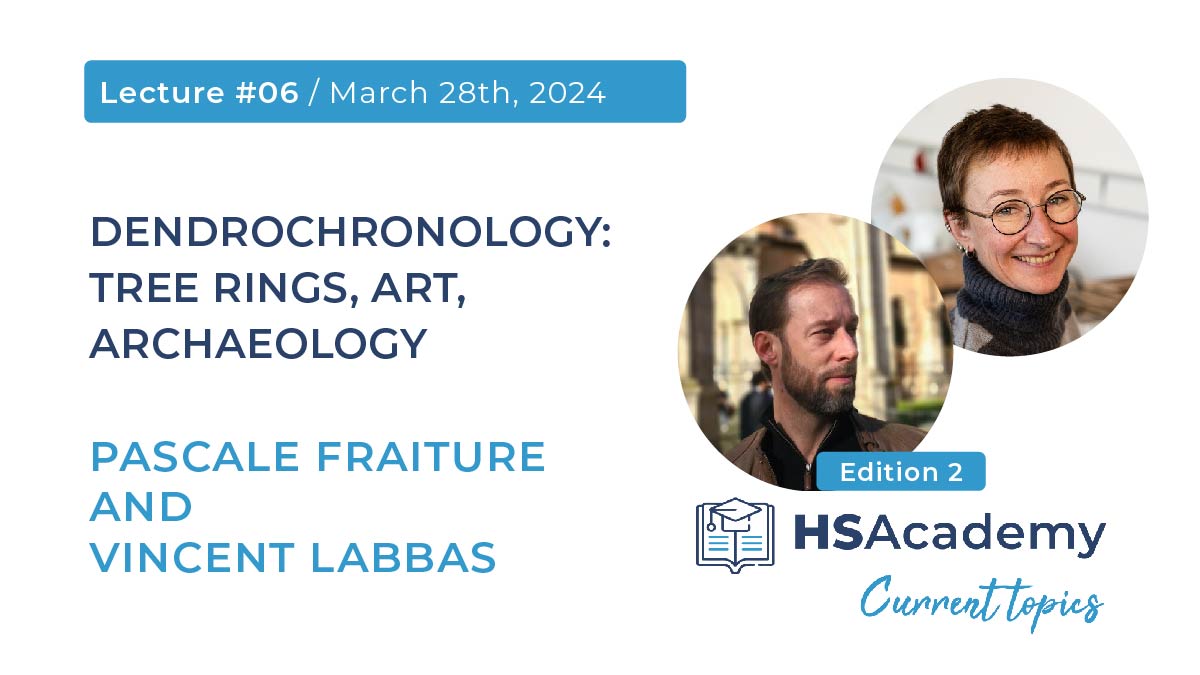
Lecture 6 (2023-24) : Dendrochronology: tree rings, art, archaeology
The 6th lecture of the 2nd edition of the “Current Topics in Heritage Science”was delivered by Pascale Fraiture and Vincent Labbas, on the topic: Dendrochronology: tree rings, art, archaeology on Thursday, March 28th at 3.00 pm (CET), using the Zoom webinar platform. This lecture introduced the participants to the dendrochronological approach applied to cultural heritage. A practical look at how it can be applied to cultural heritage, with particular emphasis on dating, reliability and accuracy, was provided.
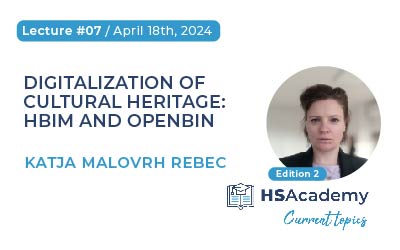
Lecture 7 (2023-24) : Digitalization of cultural heritage: HBIM and OpenBIM
The 7th lecture of the 2nd edition of the “Current Topics in Heritage Science” was delivered by Katja Malovrh Rebec, on the topic: Digitalization of cultural heritage: HBIM and OpenBIM on Thursday, April 18th at 3.00 pm (CET), using the Zoom webinar platform. The lecture is focused on digitization procedures for the efficient management, preservation, and enhancement of cultural heritage through the use of advanced technologies such as Heritage Building Information Modeling (HBIM) and use of complementary techniques.
EDITORIAL TEAM – EDITION 2 (2023-24):
Chaban, Antonina, Research technologist at the Heritage Science Group at CNR-INO (H2IOSC project, funded by the European Union) – Scopus ID
Di Gianvincenzo, Fabiana, Postdoctoral research fellow at the Heritage Science Laboratory Ljubljana (ODOTHEKA project, funded through the CEUS scheme, ARRS – Slovenian Research Agency) – Scopus ID
Quintero Balbas, Diego, Researcher at the Heritage Science Group at CNR-INO (H2IOSC project, funded by the European Union) – Scopus ID
Rijavec, Tjaša, PhD Student at Heritage Science Laboratory Ljubljana (funded by a Young Researcher Grant, ARRS – Slovenian Research Agency) – Scopus ID
EDITORIAL TEAM – EDITION 1 (2022-23):
Bertasa, Moira, Postdoctoral research fellow at the Heritage Science Group at CNR-INO (PNIR SHINE project, funded by MUR) – Scopus ID
Chaban, Antonina, Postdoctoral research fellow at the Heritage Science Group at CNR-INO (IPERION HS project, funded by EU H2020) – Scopus ID
Di Gianvincenzo, Fabiana, Postdoctoral research fellow at the Heritage Science Laboratory Ljubljana (ODOTHEKA project, funded through the CEUS scheme, ARRS – Slovenian Research Agency) – Scopus ID
Ebeid, Hassan, Marie Curie Research Fellow at the Heritage Science Laboratory Ljubljana, (ISLAPAP project, EU Marie Skłodowska-Curie Action) – OrcID
Quintero Balbas, Diego, Postdoctoral research fellow at the Heritage Science Group at CNR-INO (DIAGNOSE project, co-funded by Tuscany Region POR FSC 2014-2020 Giovanisì, Galileo Museum, El. En. Group) – Scopus ID
Rijavec, Tjaša, PhD Student at Heritage Science Laboratory Ljubljana (funded by a Young Researcher Grant, ARRS – Slovenian Research Agency) – Scopus ID

